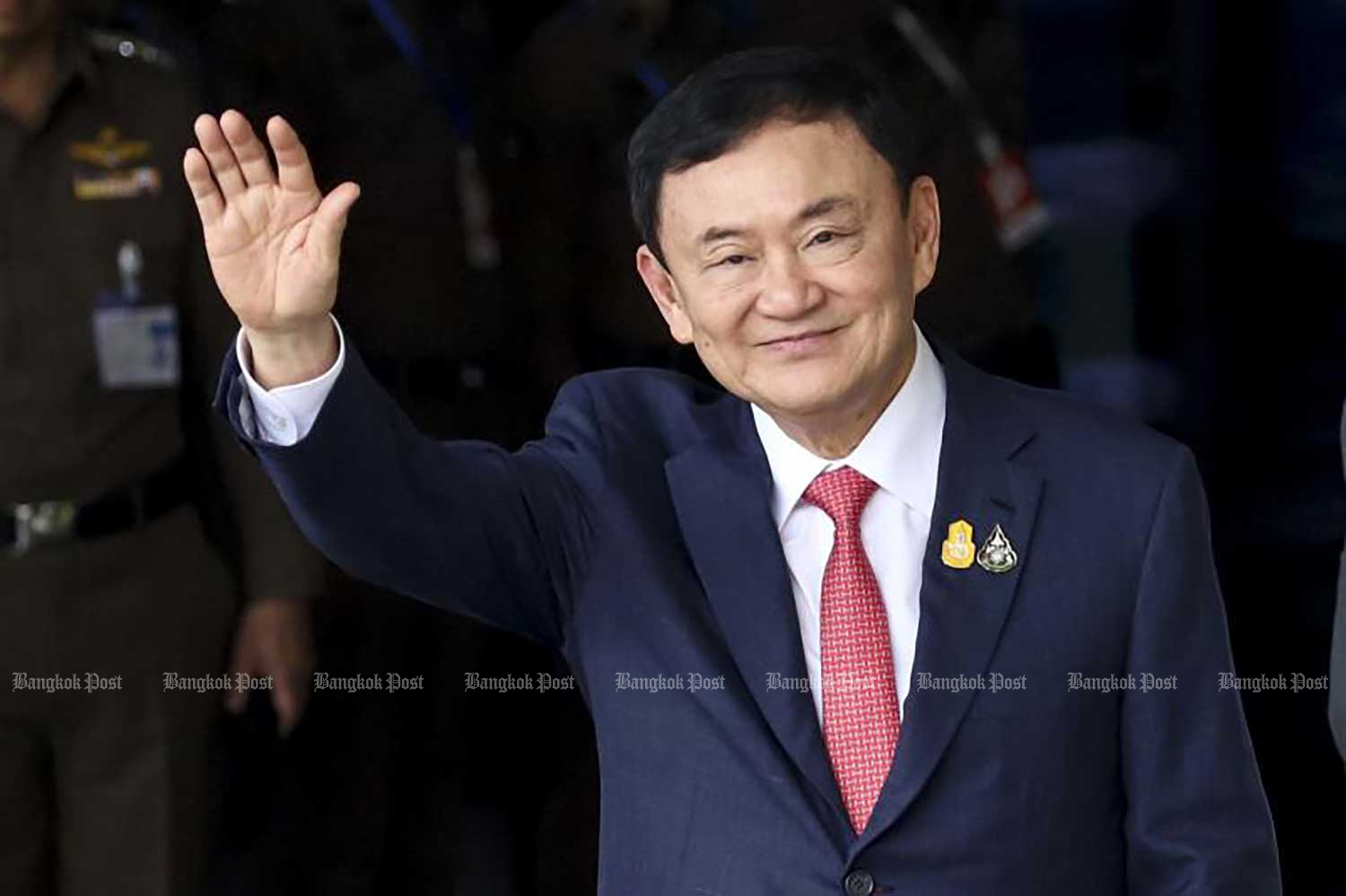Thaksin's condition protected by 'right to privacy'
published : 26 Sep 2023 at 08:19
writer: Gary Boyle
ORIGINAL SOURCE/WRITER: Post Reporters

The Corrections Department on Monday said it cannot give details about inmates' health or other medical details without their consent, to protect their right to privacy.
The statement comes amid continuing calls for the department and the police to release updated details on the health of convicted former prime minister Thaksin Shinawatra, who has been in the Police General Hospital since shortly after his sentencing more than a month ago.
There are suspicions Thaksin, who has a year-long sentence to serve, is being given privileged treatment in being allowed to stay out of prison.
His daughter Paetongtarn said last week that her father had undergone surgery since arriving back in Thailand and was recovering, but she gave no further details.
The Corrections Department said it must comply with human rights protections and related laws, which treat health information as confidential. It could not disclose inmates' health details without their consent.
Political activist Srisuwan Janya has demanded the department disclose an official report by corrections officials guarding Thaksin at the hospital.
According to Mr Srisuwan, the officials' daily report to their supervisor and the department chief is a detailed record of what happened that day, and includes information about meals and visits and is considered official information.
He said the report is not about Thaksin's medical condition, and he had the right to access it under the Official Information Act of 1997.
Learn from listening
Vocabulary
- activist: someone who takes part in activities that are intended to achieve political or social change, especially someone who is a member of an organisation - นักกิจกรรม
- amid: at the same time as - ท่ามกลาง
- comply with: to obey a rule or law or do what someone asks you to do - ปฏิบัติตาม
- condition: the physical state of a person, animal, thing or place - สภาพ
- confidential: secret, often in a formal, business or military situation - ที่เป็นความลับ
- consent: permission to do something - การยอมให้ทำ, การอนุญาต
- convicted: having been proven guilty of a crime by a court of law - ต้องโทษ, ได้รับการพิสูจน์ว่าข้อกล่าวหามีความผิดจริง
- Corrections Department: the government department in charge of running prisons - กรมราชทัณฑ์
- human rights: the basic rights which it is generally considered all people should have, such as justice and the freedom to say what you think - สิทธิมนุษยชน
- inmate: someone who is kept in a prison, mental hospital or other institution - ผู้ถูกกักกัน, ผู้ถูกกักบริเวณในเรือนจำหรือโรงพยาบาล
- privacy: the freedom to do things without other people watching you or knowing what you are doing - ความเป็นส่วนตัว
- privilege: a special benefit that is available only to a particular person or group - เอกสิทธิ์
- sentence : a punishment given by a court of law - การตัดสินลงโทษ
- sentencing (noun): when the court announces the prison sentence, the amount of time someone found guilty of a crime will stay in prison or how much they have to pay - การกำหนดโทษ
- surgery: medical treatment in which a doctor cuts open someone’s body - การทำศัลยกรรม
- suspicion: a feeling that something bad is probably true or likely to happen - ความสงสัย
- undergone: experienced a process of change - เผชิญกับ, ประสบ




